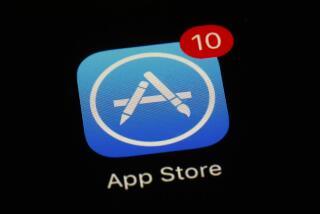European Court to Open Hearing on Microsoft
- Share via
A European Union court will hear high-stakes arguments this week on whether to curtail the European Commission’s power as an antitrust watchdog or endorse forcing Microsoft Corp. to change its business practices.
A 13-judge panel of the Court of First Instance opens five days of hearings today to determine whether the commission was right to rule in 2004 that Microsoft had abused a near-monopoly in its Windows operating system.
“The objective of this decision is to ensure that Microsoft’s competitors can develop products that interoperate with the Windows [operating system] ... and viably compete,” the commission said at the time.
It imposed a $613-million fine and ordered Microsoft to change the way it sells software.
Microsoft says that it acted legally, others can compete fairly and that the court -- the second-highest in the EU -- should throw out the commission decision. “There is healthy competition and interoperability in all the markets covered in this case, and we will bring those facts to the court next week,” the company said in a statement.
If Microsoft prevails, Brussels’ authority for any future action against the company will be in tatters. The commission’s power as Europe’s premier competition regulator has already suffered three court reversals in smaller cases. Another defeat would be a blow to its prestige.
The European decision parallels one in the United States, where appeals courts found in 2001 that Microsoft’s competitive tactics were against the law.
Microsoft never admitted that its U.S. business practices were wrong. After a more friendly administration took office under President Bush, it faced only mild sanctions.
The same practices that sparked the original U.S. case prompted the European Commission to take action.
A decision in the case is not expected for months.
The commission decision involved audiovisual software as well as the connections between desktops and laptops and central computers, called servers.
Other companies at one time took the initiative and captured a large share of the market, among them RealNetworks’ RealPlayer for audiovisual software and Novell and Samba for servers.
Then Microsoft developed competing products and set out to get people to switch to them.
The European Commission held that Microsoft skewed the scales by taking advantage of the power it enjoyed as a result of more than 90% of the world’s laptops and desktops running on the Windows operating system.






